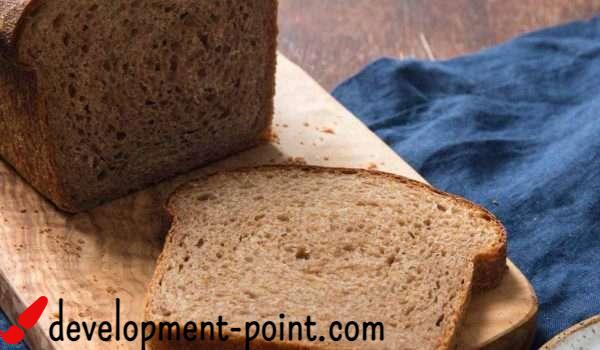Poppy seeds: their benefits and their relationship to drug analysis
Have you ever heard of poppy seeds? Can these seeds be beneficial or harmful to health? Learn with us from the following article about the most important information about these seeds and their potential health benefits and harms as well, in addition to their relationship to drug analysis, common ways to take them, and other important warnings that you should know.
What are poppy seeds?
Poppy seeds are small black grains, resembling the shape of a kidney, and these seeds come from the flowers of the poppy plant or Papaver smoniferum, a plant found mainly in the eastern Mediterranean. These seeds have been used for therapeutic purposes since ancient times, as the seeds and oils extracted from these seeds offer many different health benefits.
Nutritional value
One tablespoon of poppy seeds, or the equivalent of 9 grams of these seeds, contains the following nutritional values:
- 46 calories.
- 1.6 grams of protein.
- 3.7 grams of fat.
- 2.5 grams of carbohydrates.
- 1.7 grams of fiber.
- 26% of the body’s daily need for manganese.
- 16% of copper (the daily value).
- 10% of calcium.
- 7% of magnesium.
- 6% of zinc.
- 6% of thiamine.
- 5% of iron.
The benefits of poppy seeds
Potential health benefits of these seeds include:
1- Rich in nutrients and antioxidants
Poppy seeds are high in fiber, vegetable fats, and many nutrients. They are particularly rich in magnesium, which plays an important role in bone health and blood clotting. It also helps the body utilize amino acids, fats, and carbohydrates.
These seeds also contain copper, which is an important mineral necessary for the formation of connective tissues and the transport of iron within the body. Oil can also be extracted from these seeds, which are rich in omega-6 and omega-9 fats, and may contain little omega-3.
These seeds and their oils are a good source of polyphenols, a type of antioxidant that can help reduce the risk of certain health problems, such as heart problems.
2- Reducing pain
Poppy seeds contain a percentage of morphine, codeine, and some other opium derivatives that are known to have relieving and sedative properties that also help sleep.
It is worth noting that the components of opium do not exist naturally in poppy seeds, but these components can reach the seeds during harvesting or as a result of some pests, and these seeds are usually cleaned seriously to get rid of these traces before they are offered in the market for use. In many cases, uncleaned samples of these seeds are sought, to increase the possibility that the seeds contain opiate components.
3- The benefits of poppy seeds for the skin
The oil extracted from poppy seeds contains a high percentage of monounsaturated fats that are beneficial for skin and skin health. Some studies have indicated that these fats can help heal wounds and prevent the appearance of lesions that cause dandruff when applied directly to the skin and skin.
4- The benefits of poppy seeds for weight loss
As we mentioned earlier, poppy seeds or seeds are an important source of fiber, magnesium, calcium, and some healthy fats, so some studies indicate the health benefits that can be obtained when using these seeds when you want to lose weight, as they increase the feeling of satiety, and they are low in fat. Cholesterol and sodium, which also enhance the slimming process.
5- The benefits of poppy seeds for sex
Some available studies indicate that these seeds can improve fertility. According to some experiments, some products extracted from poppy seed oil were used and injected into the fallopian tubes of some women participating in these experiments. The results indicated an improvement in fertility, but These results still need a lot of evidence and proof.
Other health benefits
Although there are few direct studies that support these benefits, there are some other potential health benefits that poppy seeds can provide, most notably:
- Improve digestion.
- Promote healthy hair.
- Headache treatment.
- Asthma treatment.
- Improve heart health, and reduce the incidence of heart problems.
How to eat poppy seeds
These seeds can be eaten in the following forms:
- Eat it whole.
- Grind it and then eat it.
- Grind it and then add it to meals.
- Press it to get the oil and use it.
- They can be added whole to salads and meals for extra flavor and texture.
Poppy seed damage
Eating poppy seeds is considered safe when purchased from trusted places and used in small quantities, but sometimes there are some side effects and side effects that you should pay attention to:
- Taking these seeds by mouth may cause an allergic reaction in some people, but this is uncommon.
- Eating large amounts of poppy seeds can cause an intestinal obstruction.
- Unclean poppy seeds or products containing poppy that are promoted as a pain reliever or sleep aid can contain amounts or doses of opium that can cause addiction, risk of overdose or even death.
- Poppy seed oil may cause some skin side effects, such as redness, itching or pain, and although this is rare, you should immediately stop using these seeds if this occurs, and see a doctor.
Poppy seed tea
It is never recommended to drink poppy seed tea, as this tea is made by soaking the seeds in water, as a result of this the opiates in these seeds can leach into the water you will be drinking, and this can result in serious side effects.
It is worth noting that the poppy seed used in food preparation is washed, which helps to get rid of 90% of the opiate components in it, unlike the seeds used to make tea, they are not drained properly.
Poppy seeds and drug analysis
Eating poppy seeds before having a drug test can cause a positive test. Small amounts of codeine and morphine can be detected in the urine, up to 48 hours after eating the seeds.
The exact amount of these seeds required to make a positive test result usually depends on the maximum drug levels set by the lab, as well as the percentage of opium in the seeds, whether they have been washed or not. In short, the higher the amount of poppy seeds that were eaten, the greater the likelihood of a positive drug test result for opiates.
Are poppy seeds the same as chia seeds?
No, despite the similarity of the two types to each other in shape, both of them are small grains, which can be brown, black or white in color, but each type of these seeds comes from different plants, and chia seeds differ from poppy seeds in ingredients and nutritional values. The calories and percentage of fats found in poppy seeds are higher than those found in chia seeds, but chia seeds contain a higher amount of fiber than poppy seeds, and both types provide different benefits to the body.

